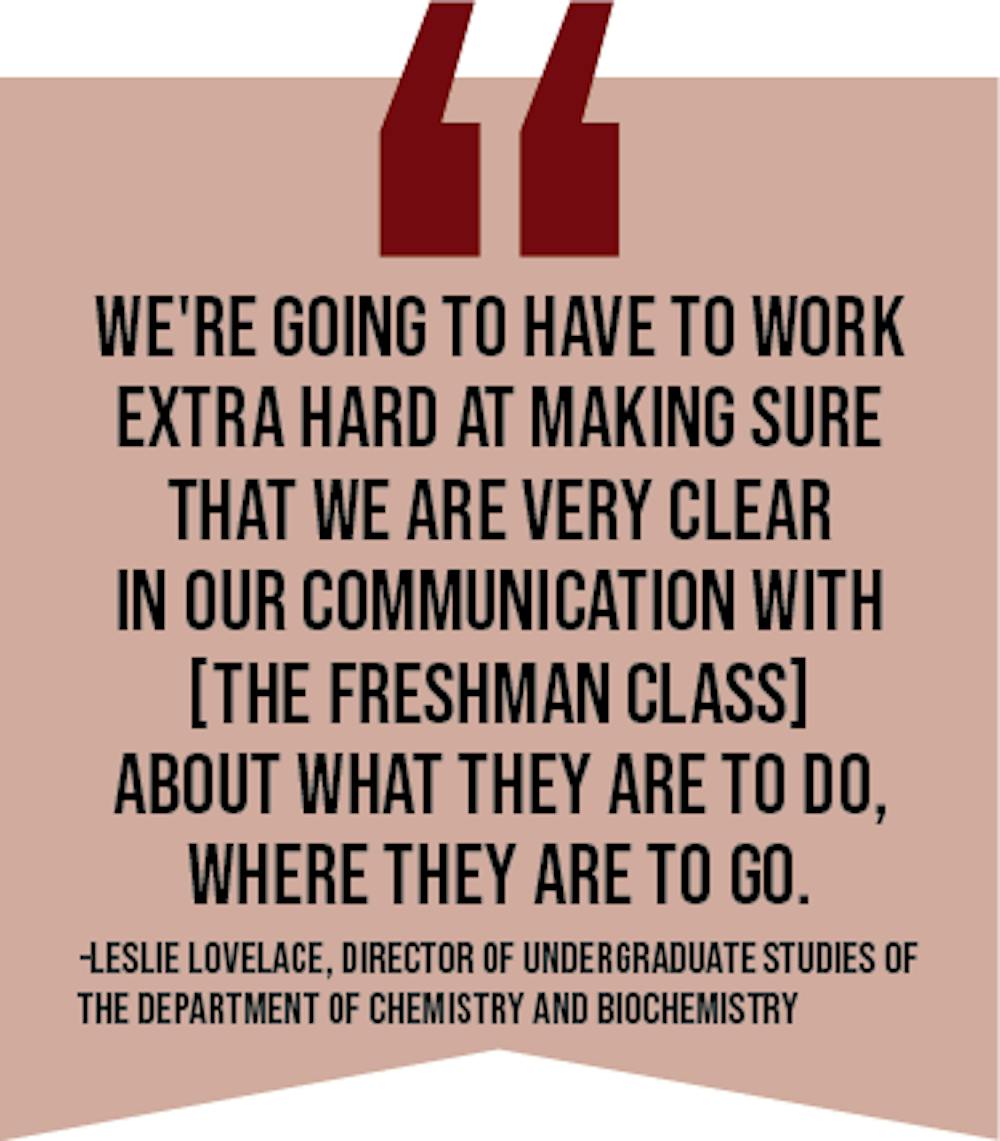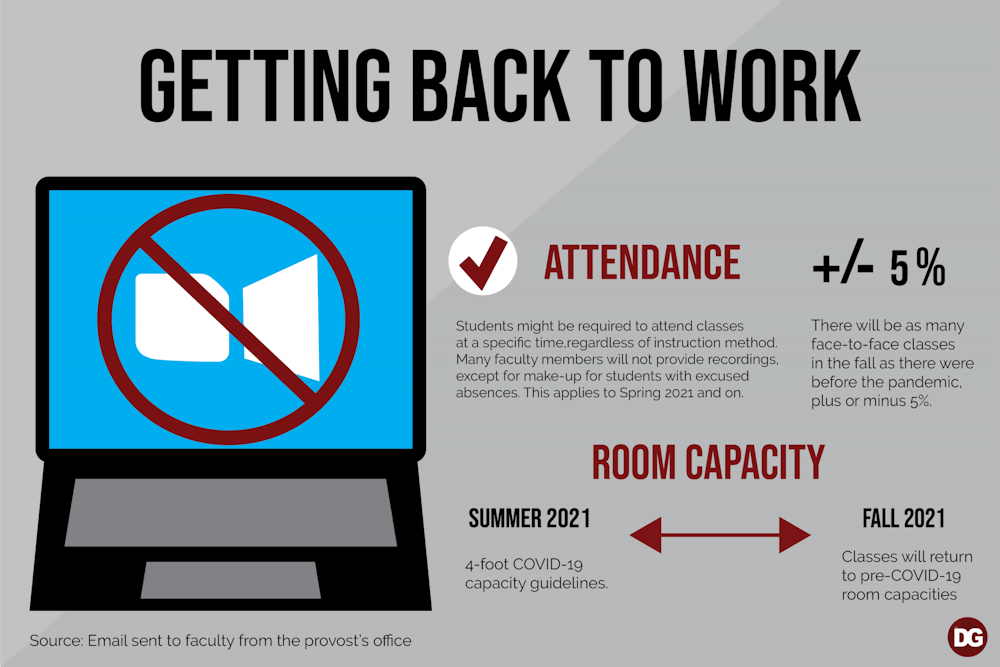USC announced plans to return to face-to-face classes for the fall 2021 semester on March 8. The amount of in-person classes offered in the fall will be close to the number of in-person classes offered before the pandemic, give or take 5%, according to an email from the provost.
The plan includes the return of normal campus operations, such as campus activities and events, according to a press release from the university.
"It'll look a lot more similar to the fall of 2019 than it did the fall of 2020," university spokesperson Jeff Stensland said.
Some of the logistics for the return to campus plan have yet to be decided, according to Stensland, but the university is currently looking into continuing some of its more successful COVID-19 mitigation strategies, such as COVID-19 and antibody testing. "The Return to Learn Plan" will be updated with the university's fall 2021 COVID-19 mitigation policies later this year.
Starting this summer, all online course offerings must be approved by the faculty senate, a requirement that was waived at the start of the pandemic.
The return of this requirement means faculty will have less flexibility to choose the modality of their courses. This semester, faculty members were allowed to choose whether they offered their courses as web asynchronous, web synchronous, hybrid, face-to-face, or a mixture of these options.
Exceptions will be made for faculty members who are at a higher risk for COVID-19, according to Stensland.
Scott Vandervelde, a professor in the School of Accounting, said one of the challenges he thinks the university will face when returning to in-person classes is the diverse number of personal situations within the student body.
"I think when you have to make decisions that impact, you know, 30,000 people, it's really difficult to manage different expectations and different beliefs and different personal situations," Vandervelde said. "I think they are trying to balance that with still delivering a high-quality education to people so that there isn't a long-term negative effect on education."
The university is encouraging departments to offer all 100-level courses face-to-face, citing the need for a “quality experience.”
This is especially true for freshmen lab classes, which require a “hands-on” approach, according to Leslie Lovelace, the director of undergraduate studies for the Department of Chemistry and Biochemistry.
“When you have 300 students, and they're all online, it's kind of hard to make sure that type of participation is happening," Lovelace said. "We’ve developed quizzes, we try to keep them, you know, interactive. But truth of the matter is, it's very hard to tell whether someone has just logged in and checked out.”
Lovelace said she thinks one of the biggest hurdles next semester will be the incoming freshman class, who may have experienced two years of remote high school learning.

"We're going to have to work extra hard at making sure that we are very clear in our communication with them about what they are to do, where they are to go," Lovelace said. "It was already confusing, even before the pandemic, for freshmen coming in. So now it's going to be a little more confusing."
In terms of teaching in-person again, Nicole Fisk, the associate director of first-year English, said she's most excited for the "silly things," like getting to use her whiteboard.
"Something I love as a teacher is when we're trying to like, puzzle through something in the books, I have students raising their hands and offering insight, and I write everything up on the whiteboard," Fisk said. "So by the end of class, there's so much stuff on the whiteboard that I've had students take a picture of it before. They're like 'I'm gonna send this to my mom, she's not going to believe this.' That's something that I haven't been able to do online."
Fisk said she’d only feel comfortable teaching in-person if she had already received the COVID-19 vaccine.
South Carolina moved into phase 1b of its vaccine rollout on March 8. Under phase 1b, teachers who are teaching in-person, essential workers and people 55 and older are eligible to receive the COVID-19 vaccine. People 16 or older with preexisting conditions are also eligible to receive the vaccine.
"We are eligible to receive the vaccine at this point. So we hope folks take advantage of that and, you know, be ready for the fall," Stensland said.

